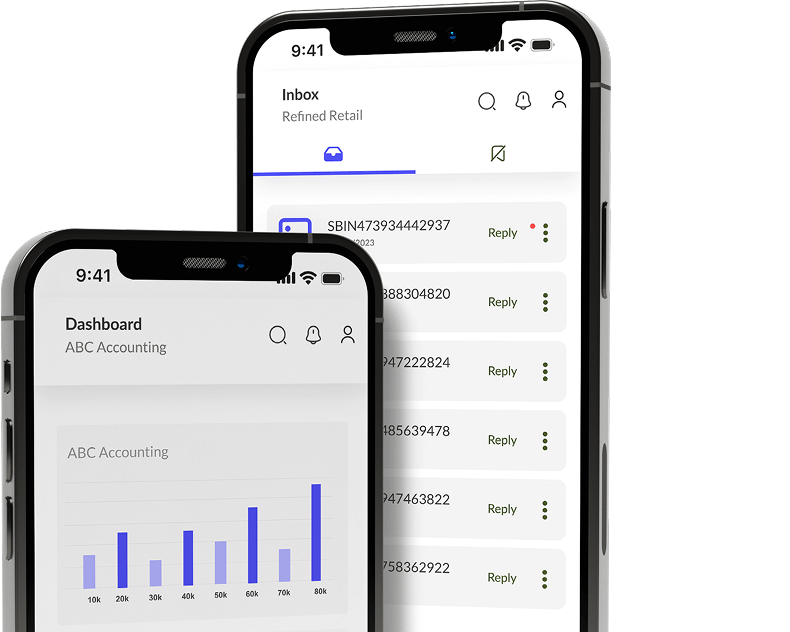Lenders don’t reject your loan because they don’t like your idea.
They reject it because they don’t trust your numbers.
If your books are messy, outdated, or scattered across 12 spreadsheets and 4 WhatsApp threads, you’re not “still working on it”. That is, an inaccurate, incomplete or poorly maintained ledger will not work in your favour. Instead, you’re sending a signal that says, “This business might be disorganized. Risky. Hard to underwrite.”
That’s where bookkeeping stops being an internal task and starts becoming a frontline financial signal, especially when it comes to borrowing money.
So, what do lenders actually look for?
Whether you’re applying for a business loan through a traditional bank, an NBFC, or a fintech platform, the lender’s job is done in 3 simple steps:
Assess risk
Evaluate repayment capacity
Make decisions based on data
And that data doesn’t come from your pitch. It comes from your books.
Here’s what they typically ask for:
Profit and loss statements
Balance sheets
Bank statements
GST return summaries
Credit history and repayment schedules
Expense reports
Cash flow projections
Asset and liability details
This is not just a checklist. It’s the foundation of the lender’s decision-making process.
Clean books mean faster, smoother, more credible loan applications
If your accounting is up-to-date and structured, your loan application becomes 10x easier to process. Why?
Because it lets underwriters:
Understand your revenue and profit trends
Spot irregularities (or feel confident that there are none)
Compare declared income with tax filings
Trust that your reporting is consistent
And trust is what gets loans approved.
On the flip side, poor bookkeeping is a BIG red flag
Here’s what messy books tell a lender:
You don’t take compliance seriously
Your cash flow might not be real-time
You have no system to detect errors or fraud
You may miss payments, because you miss details
So, even if your business is actually doing well, it doesn’t look like it.
And in finance, perception isn’t just reality, it’s the decision.
Fintech lending makes this even more critical
Unlike banks, fintech lenders don’t wait for you to upload documents. Many of them use automated systems that sync with your GST filings, accounting software, or bank feeds in real time.
What does that mean for you?
If your books are in Excel or half-manual, you do not have full credibility
If your numbers don’t add up or aren’t structured properly, the algorithm flags you.
If your compliance is delayed, your loan gets delayed or silently rejected.
Fintech underwriting is fast, automated, and data-driven. But your data needs to be clean, accessible, and credible. That’s on your bookkeeping system.
The role of a good accounting system
Bookkeeping isn't just about recording. It's about preparing.
A good accounting setup:
Keeps your records clean, searchable, and audit-ready
Tracks GST input/output accurately
Reconciles bank data without manual work
Generates financial reports in minutes, not hours
Stores past filings for proof during due diligence
When that system is automated, the quality of your books stays consistent, even if you or your team are busy, short-staffed, or mid-deadline.
What does this mean in practice
Let’s say you're applying for a ₹10 lakh working capital loan.
You submit your application. The lender asks for:
12 months of P&L
6 months of GST returns
3 months of bank statements
Current liabilities and vendor dues
If your books are up to date:
✅ You send all of that within 15 minutes.
✅ It’s already filed, categorized, and downloadable.
✅ You get approved in a few days — maybe even same-day, if it’s a fintech lender.
But if your books are incomplete:
❌ You’ll need 3 days to “prepare everything”
❌ The numbers will have gaps or mismatches
❌ The lender either delays, reduces, or denies your loan
The sad part? It’s not because your business lacked potential.
It’s because your records lacked clarity.
So where does Accomation.io fit in?
At Accomation.io, we work with Indian MSMEs and accountants every day, and we’ve seen this pattern over and over again:
The businesses that automate their bookkeeping don’t just finish work faster. They get more visibility, more trust, and more access to credit.
We built Accomation.io to eliminate the most painful parts of accounting:
Manual entry
Document juggling
Bank statement reconciliations
And as a result, our users are always loan-ready, not scrambling during crunch time.
And so…
Loans aren’t approved based on hope. They’re approved based on clarity. If your books are sloppy, your credibility takes a hit, whether you deserve it or not.
But if your numbers are clean, your reports are synced, and your data is organized, you’ll stand out as a business worth backing.
And that, in the end, is what makes the difference.




